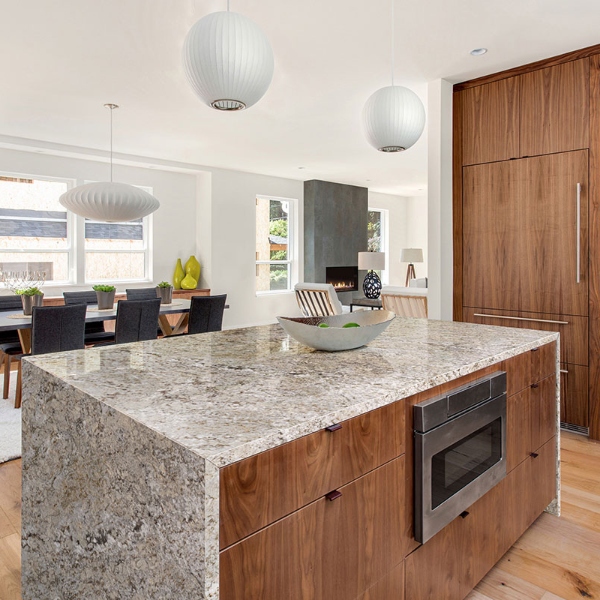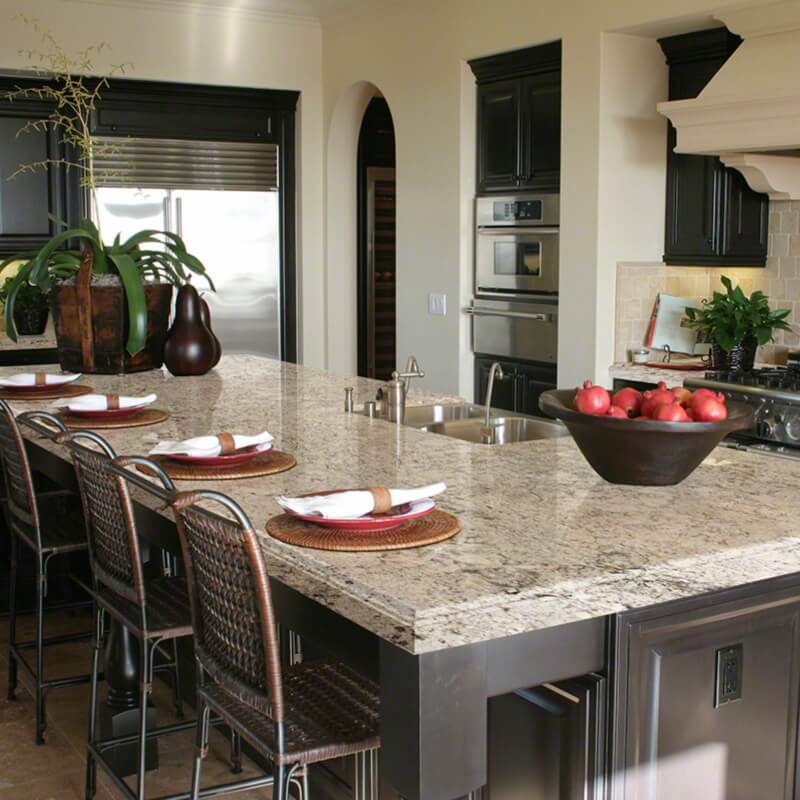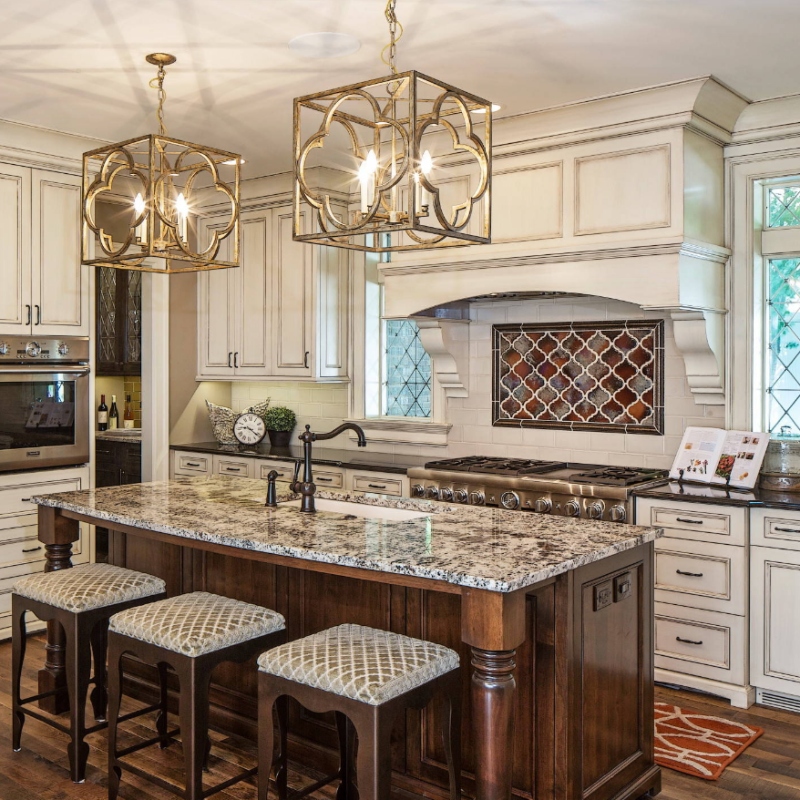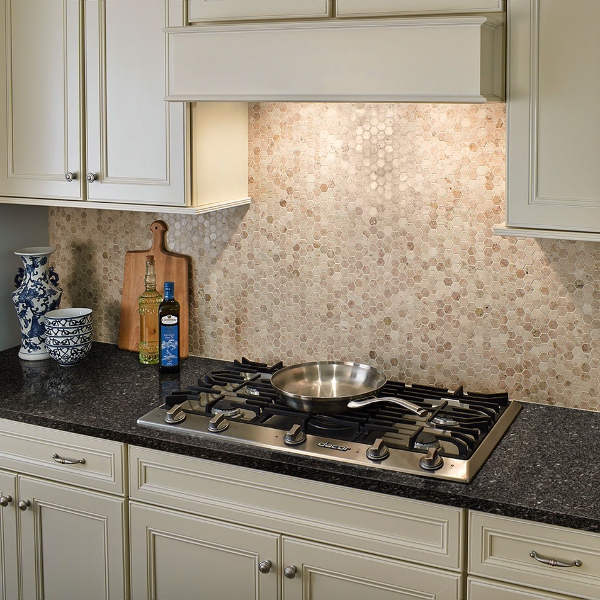Caring For Granite Countertops: Cleaning, Sealing, And Polishing
February 15, 2021
Are you considering granite countertops but don't know if it's worth the upkeep? Created from minerals such as calcite, serpentine, onyx, and more, granite is a beautiful material that can create a high-end look in any kitchen. By only following a few simple rules of thumb, you'll find that keeping your countertops well-maintained is easier than you might first assume.
With this in mind, read on for our in-depth care instructions on how to keep your granite countertops looking their best for years to come!
What is the Best Cleaner to Use?
When it's time to clean your countertops, using the right cleaner for the natural stone is one of the most important steps. This is because any natural or man-made products that are acidic or alkaline may damage your countertops over time.
Instead, you'll want to use a pH neutral cleaner in order to avoid etching. Etching is caused by aides over time, eating into the polished surface and creating dull spots.
With this in mind, water is one of your top options when it comes to cleaning up messes. If you wipe up spills and dirt as soon as they happen with a dampened cloth, this will clean up the majority of your messes without an issue.
Here is a list of what not to use on your countertop:
- Lemon juice
- Vinegar
- Citric acid
- Bleach
- Glass cleaner
- Ammonia
If you have more stubborn stains and for weekly cleanup, we recommend using a combination of dish soap and warm water. Once you've thoroughly scrubbed your countertops with a microfiber cloth and a bit of soap, wring out the cloth and wipe it down again with plain water.
This will help you avoid leftover soap residue and have your countertops sparkling again! Remember not to forget the countertop edges as well as the surface.
For dried spills that are stubbornly sticking to the surface, create a paste with baking soda and water. This is also the best way to remove oily-looking marks from the countertop.
Use the Right Tools
We've mentioned that you'll want to use a microfiber cloth on your countertops. You don't want to use wire brushes, abrasive pads, or even sponges on your countertops because they all have the potential of scratching the surface. Instead, we recommend microfiber cloths because you won't have to worry about scratching the surface, even if you're moving it around.
Microfiber cloths are also great at picking up dirt and debris instead of simply shifting it around. If you do find you have sticky or stubborn areas, resist the urge to scrub your countertop with an abrasive material. Instead, use baking soda and water pastes or a combination of 50/50 isopropyl alcohol and water in order to soak and lift stubborn stains easily.
Black granite countertops will particularly benefit from the use of a microfiber cloth, as scratches will be more visually apparent!
Seal Your Countertops
Your diligence in cleaning won't be effective if you ignore sealing your countertops as well. When it comes to quartz vs. granite, one of the main difference is that while granite needs to be sealed, quartz does not. Take this into account if you're trying to decide between the two!
If you're not sealing your granite, it's far more likely to be damaged and stained over time, even if you're focused on cleaning it regularly. There are two types of sealant: topical and impregnating. The difference is the way they're administered, as topical sealants create a barrier on top while impregnating sealants fill up the pores of the stone. However, they'll both need to be reapplied every couple of years as they wear down.
You'll know that your sealant is working if you spray water on the surface and notice that the water is beading. If the water isn't beading on the surface, this is a good indication that you need to reapply.
Reapplying your sealant is as simple as reading the manufacturer's instructions on the product you purchase. Make sure that your natural stone countertops are completely dry and clean before you begin. Rub the sealant in with a clean microfiber cloth, let it sit for at least ten minutes, then wipe away the excess.
Polish Your Countertops
Lastly, polishing your countertops will keep them looking brand new–even if you've enjoyed them in your home for years. You can either purchase granite polish, or you can create a solution with baking soda and water. With three parts baking soda and one part water, apply it to your countertops in a thin layer. Then, gently buff them with a clean cloth.
After you wipe away all the residue, you'll find that it leaves your countertops shining! You can also use very small amounts of oil for the same effect.
Keeping Your Granite Countertops Shining
When it comes to owning granite countertops, we hope we've dispelled the myth that they're hard to maintain. All you need to know is to be gentle with them by using a microfiber cloth as well as avoid acidic and alkaline cleaners.
Most of the time, warm water and your cloth will do the trick. For more stubborn stains, apply baking soda or isopropyl alcohol with a mixture of water, and let the solution sit for a few minutes. Lastly, if you notice that water isn't beading on the surface of the countertops any longer, you'll need to reseal them. This is a simple step that will take you less than a half hour!
Read More about Granite Countertops
The Best Uses for Granite Countertops
Granite Countertops: Passing Fad or Timeless Investment?
Natural Granite Countertops Frequently Asked Questions
Black Granite Countertops Make a Powerful Statement
READ MORE ABOUT GRANITE COUNTERTOPS
Can I Install Granite Countertops Outside?
Choosing Granite Countertops For White Cabinets
Choosing Your Bathroom Countertop: Quartzite, Granite, Marble, And Quartz Countertops


.jpg)

